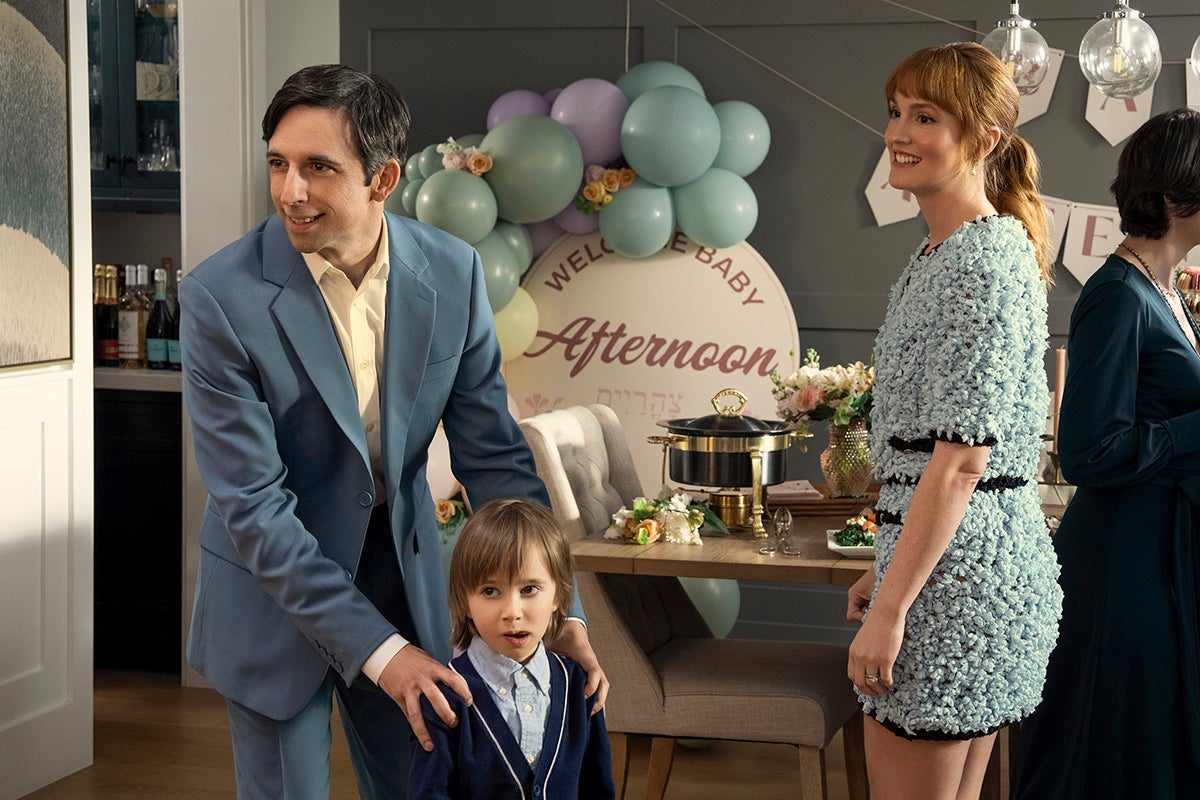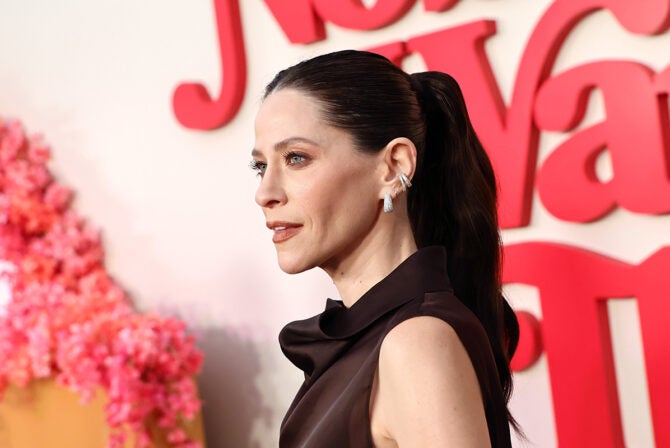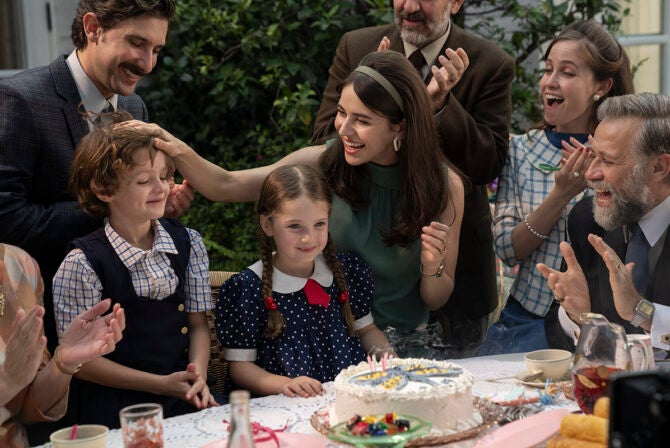Whether or not you like the way it depicts Judaism, one thing is for sure: “Nobody Wants This” is braving new Jewish TV frontiers in its second season.
The show features not oft represented Jewish events, like Purim and, in episode 5, a Jewish baby naming! This is a ceremony that Jews only started performing around a half century ago and which — dare I say? — many non-Jews know nothing about.
So does “Nobody Wants This” ace its baby naming? And what else do you need to know about this Jewish ceremony? Let’s get into it.
In the episode, Rabbi Noah Roklov, played by heartthrob Adam Brody, gets his first freelance rabbi gig after leaving his cushy job at Temple Chai! He’s officiating a social media influencer’s baby naming ceremony — specifically, the baby naming of Abby Kaplan’s youngest child. And delightfully, Abby is played by Brody’s real-life wife Leighton Meester.
What exactly is a Jewish baby naming?
Rabbi Noah explains to his non-Jewish girlfriend Joanne (Kristen Bell) that the ceremony is also known as a “brit bat,” and that it is a “ritual where Jewish parents reveal the name of their child and its significance.”
That is absolutely true. And yet a baby naming is about more than just a name. Brit in Hebrew means covenant, and it is, in a way, an alternative version to the brit milah, or bris as others may know it, the Jewish ritual circumcision of babies when they are eight days old.
Jewish people also traditionally wait until this moment to reveal their newborn’s name and their newborn’s Hebrew name — the name they will use in all Jewish ritual events from then on. It is a way for a child to enter into a covenant with God, their first introduction to Jewish life.
I understand why Netflix didn’t want to go into the dangerous territory of adjudicating circumcision; a brit bat, by contrast, feels like easy sailing.
What’s the difference between a bris and a brit bat?
Brit bats have been around since the 1970s. They offer an option for Jewish girls to have a ritual as a baby, introducing them into Jewish life. Some Jews will follow similar traditions to a brit (bris), waiting to announce the baby’s name and doing it eight days after birth. But since, unlike a brit milah (which is required by Jewish law), a brit bat is not a requirement, the parents can really play it by ear. They can host it at any time after birth, and are able to tailor the ritual to their level of observance. (Some Jews will have a baby naming ceremony for a boy as an alternative to a ritual circumcision).
The show gets the gist of a brit bat right. Some take place at synagogues, some in event halls, some in the private home of the parents or family, as the one in this episode of “Nobody Wants This” does. They can be as formal or as informal as the parents desire.
Abby Loves Smoothies seems more concerned with the selfie ops, and her husband Gabe, (played by fellow “Nobody Wants This” actress Jackie Tohn’s real-life boyfriend, Joe Gillette) seems content to let Noah take the wheel on the ceremony, where he introduces their baby, Afternoon, and shares her Hebrew name. The script nods to the covenant occurring between Baby Afternoon and God, welcoming her into Jewish life as “Aliza Bat Gavriel Ve’Avigayil” — the Hebrew for “Aliza, daughter of Gabriel and Abigail.”
How does one choose a Hebrew name?
Baby Afternoon Aliza (oof!) gets her Hebrew name from her late great-grandmother — who Abby Loves Smoothies can only remember being a closeted lesbian — and well, that is true to Jewish tradition.
As Noah explains to Joanne before they go in: “As Ashkenazi Jews, we traditionally name a baby after a relative who’s died.” He gives her an example: “My deda’s [Russian for grandfather] name was Alexander so I always planned on naming my future child Alexander. I could also choose a name that starts with an A.” (Abby will later say she used the name Afternoon because it starts with an “a,” just like Aliza).
While that isn’t the only way to give a Hebrew name, and different families have different traditions, Rabbi Noah, TV’s premiere hot rabbi (whether we like it or not) doesn’t do a terrible job giving audiences a first introduction to this Jewish ceremony. (Even if his brother being named Sasha, which is famously a diminutive for Alexander, might put a damper in his own naming plans for his child, since Ashkenazi Jews don’t traditionally name people after living relatives.)
As Gabe tells him at the end of the ceremony — yasher koach.
Unfortunately, the show does mess up in another way. All across the event there are signs with the word “tzoharaim” on them — Hebrew for Afternoon, (technically misspelled with an extra yud)… but that’s not the baby’s Hebrew name. Why don’t the signs say Aliza, written in Hebrew?
Was Abby’s decorator overzealous? Did the props department at Netflix want to show off their Hebrew skills? I guess we’ll never know.
Subscribe to the Jewish TV Club Substack to talk more about “Nobody Wants This,” season two!








